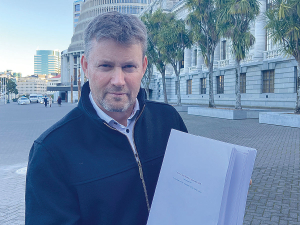Despite some earlier confusion around the exact timing, the new Government is moving to reform the way local bodies implement Significant Natural Areas (SNAs) rules on farmland.
Federated Farmers has welcomed the suspension of SNA rules as a positive step forward for both farmers and New Zealand's biodiversity.
Biodiversity spokesperson Mark Hooper says the unworkable rules were universally despised by farmers, and Feds are pleased to see the back of them.
His comments follow the announcement by Associate Environment Minister Andrew Hoggard saying that the coalition Government has agreed to suspend the requirement for councils to comply with SNA provisions of the National Policy Statement for Indigenous Biodiversity for three years. This will cover the time it will take the new Government to replace the existing Resource Management Act (RMA).
Hoggard says as it stands, SNAs identified on private property limit new activities and development that can take place on that property.
"In their current form they represent a confiscation of property rights and undermine conservation efforts by the people who care most about the environment: the people who make a living from it."
Hoggard says the Government is proposing to make the changes as quickly as possible to ensure councils and communities do not waste resources and effort implementing national direction requirements that may change following a review, which he says is being scoped now.
Mark Hooper says the SNA rules infringe farmers' private property rights and added endless layers of unnecessary complexity, compliane and cost - for very little environmental gain.
"They risked driving perverse outcomes where farmers actively choose to plant exotic species instead of natives because the Government have just made everything too hard."
Hooper says farmers are NZ's leading conservationists and can't think of any group of people who are doing more to protect and enhance our country's biodiversity.
"Farmers need to be empowered and supported to make further improvements on their properties, instead of tying them up in needless red tape."



















